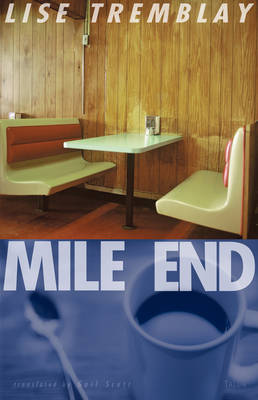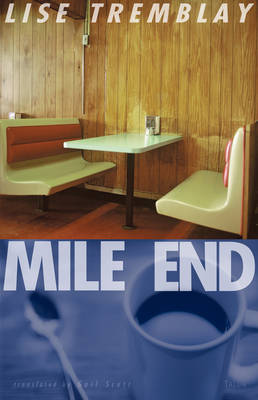
- Afhalen na 1 uur in een winkel met voorraad
- Gratis thuislevering in België vanaf € 30
- Ruim aanbod met 7 miljoen producten
- Afhalen na 1 uur in een winkel met voorraad
- Gratis thuislevering in België vanaf € 30
- Ruim aanbod met 7 miljoen producten
Omschrijving
The narrator of this Governor General's Award-winning novel does not have a name. She is simply a grotesque "fat woman," getting larger every day--a clown, a monster, in her own words, with no self, no identity save her enormous mound of flesh, its blubber, its perceived deformity. She is used by men who find her a convenience--for their careers, for a sympathetic ear, for someone to screw. No one thinks she understands anything. She feels displaced. Everyone, they keep telling her, is from "another world," which they are sure she can never penetrate or understand. Not that they really want her to. Her father precariously hosts a popular TV show, in which middle-class people confess the error of their ways, and return perpetually to the safety of the middle road. His family is an embarrassment to him, his daughter a disappointment.
Yet within this spreading body crouches the still point of a sharply observant intelligence, a vision unclouded by fantasy or illusions, least of all about herself. Her resignation to her indifferent suburban upbringing, the callousness of her grandparents, her accomplished but talentless musicianship, but most of all to the accusatory criticisms of her pathetically self-involved father, is a tightly-wound emotional spring, set to lash out terribly on a world of blind, and therefore tormenting indifference. Mile End [La danse juive, Leméac, 1999] is a chilling and masterful look at the interior landscapes of psychosis which mirror so perfectly the emptiness of the exterior surfaces they reflect.Specificaties
Betrokkenen
- Auteur(s):
- Uitgeverij:
Inhoud
- Aantal bladzijden:
- 144
- Taal:
- Engels
Eigenschappen
- Productcode (EAN):
- 9780889224674
- Verschijningsdatum:
- 30/04/2002
- Uitvoering:
- Paperback
- Formaat:
- Trade paperback (VS)
- Afmetingen:
- 142 mm x 216 mm
- Gewicht:
- 181 g

Alleen bij Standaard Boekhandel
Beoordelingen
We publiceren alleen reviews die voldoen aan de voorwaarden voor reviews. Bekijk onze voorwaarden voor reviews.











